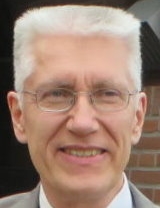Submission declined on 21 September 2024 by SafariScribe (talk).
Where to get help
How to improve a draft
You can also browse Wikipedia:Featured articles and Wikipedia:Good articles to find examples of Wikipedia's best writing on topics similar to your proposed article. Improving your odds of a speedy review To improve your odds of a faster review, tag your draft with relevant WikiProject tags using the button below. This will let reviewers know a new draft has been submitted in their area of interest. For instance, if you wrote about a female astronomer, you would want to add the Biography, Astronomy, and Women scientists tags. Editor resources
|  |
| Submission declined on 9 April 2023 by Sionk (talk). This draft's references do not show that the subject qualifies for a Wikipedia article. In summary, the draft needs to Declined by Sionk 19 months ago.
|  |
| Submission declined on 5 November 2022 by Onel5969 (talk). This draft's references do not show that the subject qualifies for a Wikipedia article. In summary, the draft needs to Declined by Onel5969 2 years ago.
|  |
 Comment: May likely meet WP:NAUTHOR but as a WP:BLP, there is need to have his life biography referenced to a reliable source. Safari ScribeEdits! Talk! 20:04, 21 September 2024 (UTC)
Comment: May likely meet WP:NAUTHOR but as a WP:BLP, there is need to have his life biography referenced to a reliable source. Safari ScribeEdits! Talk! 20:04, 21 September 2024 (UTC)
 Comment: Still cited almost exclusively to primary sources Sionk (talk) 18:53, 9 April 2023 (UTC)
Comment: Still cited almost exclusively to primary sources Sionk (talk) 18:53, 9 April 2023 (UTC)
 Comment: Accomplished, but does not meet WP:GNG or WP:NPROF. Onel5969 TT me 17:13, 5 November 2022 (UTC)
Comment: Accomplished, but does not meet WP:GNG or WP:NPROF. Onel5969 TT me 17:13, 5 November 2022 (UTC)

Arnold A. Groh (born 15 April 1960) is a German psychologist, linguist, semiotician and literary scholar. He is president/director of Structural Analysis of Cultural Systems (S.A.C.S.), and scientific director of the Institute for Cultural Diversity Studies. He teaches at the Technical University of Berlin as associate professor.[1][2]
Education
editGroh graduated from the University of Bielefeld with degrees in psychology, linguistics, and literary studies. In 1997, he earned his PhD in psychology at the University of Bielefeld, where he also prepared the DOBES (Documentation of Endangered Languages) project. Groh served as lecturer at the Free University of Berlin (2006), Humboldt University of Berlin (2007, 2014-2015),[3] and University of Lübeck (2022-2023). Groh has been academic guest and external assessor at universities in India,[4] Africa, and Latin America[5]. In the 1990s, he became involved with the United Nations, first as representative of the Semiotics Research Centre and later as head of S.A.C.S., participating in climate change and indigenous rights related conferences.[6][7]
Selected publications
edit- Theories of Culture (2020). London and New York: Routledge.
- Identidade cultural e o corpo (2019). Revista Psicologia e Saúde, 11, 2, 3-22.
- Die Widerspiegelung von Körperlichkeit in der Entstehung des Alphabets (2018). Zeitschrift für Semiotik, 40, 3-4, 63-82.
- Declaración de las Naciones Unidas sobre los derechos de los pueblos indígenas: una herramienta para combatir las desigualdades entre pueblos indígenas y la sociedad globalizada (2018). Revista Latinoamericana de Derechos Humanos, 29 (2), 15-38 (DOI: 10.15359/rdlh.29-2.1).
References
edit- ^ "Groh, Arnold".
- ^ "Arnold Groh Technische Universität Berlin". PhilPeople.
- ^ "Groh, Arnold, PD Dr".
- ^ "Seminar on semiotics". The Times of India. 6 December 2009.
- ^ "III Seminário de Violência, UCDB - Universidade Católica Dom Bosco, Campo Grande, MS, Brasil".
- ^ "Working Group on Indigenous Populations United Nations" (PDF). doCip.
- ^ "United Nations Human Rights Council Expert Mechanism on the Rights of Indigenous Peoples Eleventh session" (PDF).
- meet any of the eight academic-specific criteria
- or cite multiple reliable, secondary sources independent of the subject, which cover the subject in some depth
Make sure your draft meets one of the criteria above before resubmitting. Learn about mistakes to avoid when addressing this issue. If the subject does not meet any of the criteria, it is not suitable for Wikipedia.